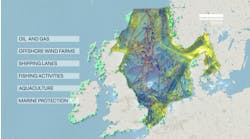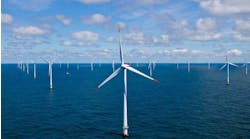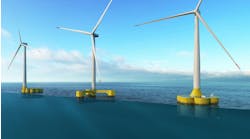Equinor reportedly shelves Norwegian-German ‘blue hydrogen’ project
Equinor has decided to abandon plans to produce so-called “blue hydrogen,” citing high costs and insufficient demand, according to a report from the Telegraph (UK).
Two years ago, Norway’s Equinor and Germany’s RWE agreed to construct a complete supply chain for the decarbonized hydrogen, in a move that was seen at the time as a clear step towards reducing harmful emissions.
Under this plan, Equinor had pledged to generate low-carbon hydrogen from natural gas, known as blue hydrogen, in combination with carbon capture and storage (CCS) in Norway. The hydrogen produced would then be exported to hydrogen-ready power plants in Germany.
The project would have included building the world’s first offshore hydrogen pipeline, to run between Norway and Germany.
However, the ambitious plan has now been abandoned, according to the Telegraph. The newspaper report commented that the decision was seen as “a huge blow to the many proponents of hydrogen who see it as a mainstay of decarbonization.”
“The hydrogen pipeline hasn’t proved to be viable. That also implies that hydrogen production plans are also put aside,” Equinor’s spokesman Magnus Frantzen Eidsvold reportedly told Reuters. “We have decided to discontinue this early phase project.”
Hydrogen, which can be made from water using renewable energy, has been seen as a potential energy source as the world attempts to transition to “net zero,” particularly for heavy industry and vehicles travelling long distances where recharging batteries may prove difficult.
However, concerns about the viability of producing hydrogen at scale have always dogged the industry, the report said.
Aside from the pipeline feasibility issues, the problem for Equinor’s German project was that it could not find enough customers to buy the hydrogen it proposed to produce. Eidsvold said Equinor also couldn’t continue maturing the project without firm long-term commitments from European buyers to import hydrogen. “We are not able to make this kind of investment when we don’t have long-term agreements and the markets in place,” Eidsvold said.
Plans to develop hydrogen-ready gas power plants in Germany with RWE will go ahead but hydrogen for those plans will be procured on the Continent, not exported from Norway.
Equinor will reportedly continue other early phase hydrogen projects, such as in the UK and the Netherlands. However, this decision will raise questions over their future too. According to the report, the decision to abandon the Norway-Germany project will raise concerns over Equinor’s plans in the UK, where it is heavily involved in a number of hydrogen projects.
Earlier this year Equinor, along with Centrica and SS, launched plans for a collaboration of multiple low-carbon hydrogen projects on the north bank of the Humber, part of a Humber Hydrogen Hub. These plans included the transformation of the Easington gas terminal and a hydrogen production facility.
Additionally, Equinor has announced plans for a dedicated hydrogen pipeline that would link Easington to Equinor’s proposed H2H Saltend hydrogen production facility at Saltend Chemicals Park, as well as to a proposed hydrogen storage facility at Aldbrough on the East Yorkshire Coast.
However, there are growing concerns that the UK has been extremely slow at developing a hydrogen economy, meaning there are few customers for such projects.



